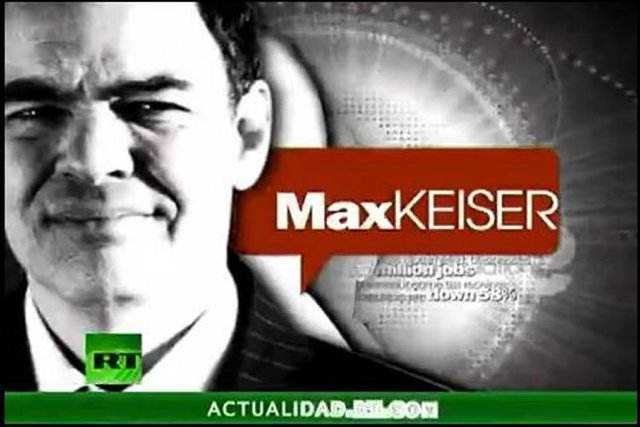Conversation Between Max Keiser & Reggie Middleton: Negative Interest Rates Don't Exist

Interview Taken From Episode 950 of the Keiser Report on RT
MAX KEISER: Lets talk about negative interest rates for a little bit here because it's being talked about as a policy that somehow makes economic sense. No economic textbook ever written has a line in there about negative interest rates. Isn't just a situation where central banks are buying bonds off bank's balance sheets at a guaranteed upfront loss just to hide the fact that these banks, like a Deutsche Bank or any of these big French banks you talk about like Societe Generale and BNP before on the show. They're technically insolvent. So central banks are just taking out all their liabilities and are willing to do so with a guaranteed upfront loss called negative interest rates.
REGGIE MIDDLETON: So, I'm trying to be polite and I tried not to cut you off in the beginning. There's not such thing as negative interest rates. You have "interest rates" and then you have somebody not giving you your money back. Negative interest rates, in my opinion, should never exist. What is called a negative interest rate, like you said, is a mathematically loss. So you have what should be a very strong risk, say Swiss...their 50-year bond, which should be a AAA risk. If you are guaranteed to take a loss, it is not AAA...obviously. What the banks are doing is two-fold, they are trying to force money out of conservative assets into risky assets trying to jumpstart their economy...number one. If and when and hence that hasn't been working, they're trying to give a bailout by basically saying we'll give you the negative interest rates. So you borrow money from me and instead of you paying me back, I'm going to pay you. But as I try to claim, there is no such thing as a negative interest rate; that is a bailout in a not so thinly veiled disguise.
MAX KEISER: Right, there is no such thing as a negative interest rate. And yet there's 11 trillion around the world of sovereign debt is now negative. And as we are pointing out here, it is in a way to affect another round of bailouts. Quantitative easing was a bailout. You had the actual bailouts. You had bail-ins. And negative interest rates is just a bailout. It's not about trying to stimulate the economy in any way or to create inflation or to do anything that makes any type of economic sense. It's just more bailouts...a bigger bailout.
REGGIE MIDDLETON: Well, it's stimulating the banking economy. You have two economies: you have the real economy and you have the banking economy. Central banks almost world wide work for their member institutions which are banks. That's the way the Federal Reserve is put together and that's the way the ECB is put together. But a lot of people still studying nomenclature. The Federal Reserve is not federal, they don't have reserves...so why are you calling it federal? But when you look at the nomenclature you think XYZ. The ECB is working to give advantage to its member banks. Which are by and large unprofitable and insolvent.